About Ponca Tribe of Nebraska Behavioral Health
The Ponca Tribe of Nebraska Behavioral Health offers a wide range of services to those struggling with addiction and mental health issues. Their alcohol rehab program is designed to help those struggling with alcoholism to get sober and stay sober. They also offer dual diagnosis treatment for those who are struggling with both addiction and mental health issues. Their opioid addiction program is designed to help those struggling with opioid addiction to recover and live a healthy life. They also offer adult and young adult programs, as well as outpatient and aftercare support. their cognitive behavioral therapy, group therapy, individual therapy, and rational behavior therapy are all designed to help those struggling with mental health issues to cope and recover. Their trauma therapy is designed to help those who have experienced trauma to heal and move on with their lives.
Addiction Treatment Programs
Alcohol Rehab
f your life has been negatively impacted by alcohol use disorder, an alcohol rehab in Iowa can help. In an alcohol program, you’ll not only receive treatment, but you’ll participate in activities, receive peer support, and learn how to have fun without alcohol.
Dual Diagnosis
Iowa dual diagnosis treatment is an integrated approach that addresses both your mental health and substance use. In dual diagnosis programs, the activities, peer support, and counseling are tailored to the unique needs of those with mental health concerns. This may include additional therapy, medication, or peer support.
Opioid Addiction
The best way to achieve recovery from opioid addiction is by completing a high-quality rehab in Iowa and applying the tools you learn to stay in sobriety. Common services include counseling and classes on coping skills, emotional management, communication, and other key life skills. Opioid rehab programs can provide inpatient or outpatient treatment.
Adult Program
Choosing an adult program in Iowa can be a great way to address important life issues while also getting addiction treatment. In an adult program, the activities, peer support, and counseling are tailored to the unique needs of this age group. This may include talking about how to build a career, raise a family, and handle the many responsibilities of independent living.
Men's Rehab
Choosing a men’s rehab in Iowa helps give the support you need in overcoming addiction and learning to handle gender-specific challenges. In a men’s program, the activities, peer support, and counseling are tailored to the unique needs of men. This may include talking about career development, fatherhood, communication strategies, and more.
Women's Rehab
Women’s rehab programs in Iowa can help women make healthier life choices and avoid common mistakes. In a women’s program, the activities, peer support, and counseling are tailored to the unique needs women have. This may include talking about building a career, motherhood, relationship safety, and more.
Young Adult Rehab
A young adult rehab in Iowa addresses the unique needs of young people transitioning to adulthood. In a young adult program, the activities, peer support, and counseling are tailored to the unique needs of this age group. This may include talking about how to start a career, have a family, and live independently.
Insurance Coverage
Free
If you are struggling to pay for addiction treatment in Iowa, consider looking for free rehabs. Most free rehabs are supported by the state or county. Be sure you find a high-quality program run by licensed professionals that uses evidence-based treatment.
Levels of Care
- 1
Outpatient Rehab
For those who are more medically stable or have finished an inpatient program, outpatient treatment in Iowa can be a useful form of rehab. During outpatient treatment, clients have independence outside of sessions, allowing them to work, attend school, and practice their new habits in real-world situations.
- 2
Aftercare Support
A key component of preventing relapse after treatment in Iowa is to have ongoing care, also known as aftercare. A strong aftercare program can include ongoing counseling, education and employment support, housing services, and connections to community resources.
Therapies
Cognitive Behavior Therapy
When you’re struggling with addiction in Iowa, your actions and thoughts may not be rational. Cognitive behavioral therapy (CBT) can help you challenge your thoughts and adjust your actions accordingly. CBT can help you identify and challenge maladaptive thoughts, calm your mind, and face your fears rationally.
Group Therapy
One way to share your feelings and get feedback during rehab in Iowa is during group therapy. Group therapy is only one of the elements of treatment, along with activities, peer support, individual counseling, relapse prevention, and more. Together, all these methods support you in establishing long-term recovery.
Individual Therapy
It’s easy to feel isolated when you battle substance use, but individual therapy in Iowa can give you a professional ally in overcoming the roots of addiction. Substance use treatment includes detox, inpatient treatment, and outpatient care, and individual therapy may be a part of each of these stages. The goal is to help clients address the roots of addiction, develop motivation to change, and create new habits for a substance-free life.
Rational Behavioral Therapy
The goal of rational behavior therapy in Iowa is to address irrational beliefs and thinking patterns to create positive change. RBT can help you identify and challenge maladaptive beliefs, reframe them, and face triggering events rationally.
Trauma Therapy
Sometimes addiction is a way to self-medicate and avoid how you feel about past traumatic events. Trauma-informed therapy can help you address these feelings and build a better life. Substance use and trauma are interrelated, and trauma-informed therapy involves working with the therapist and your support network to create healthy coping skills, become empowered, and improve resilience.
Accreditations
Location
Contact Ponca Tribe of Nebraska Behavioral Health
Top Drug Rehab Centers in Iowa
-
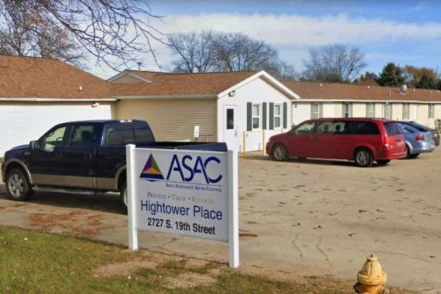 Iowa
IowaASAC Area Substance Abuse Council Hightower Place
2727 South 19Th Street Clinton, Iowa 52732
-
 Iowa
IowaASAC Area Substance Abuse Council ND Housing
2733 South 19th Street Clinton, Iowa 52732
-
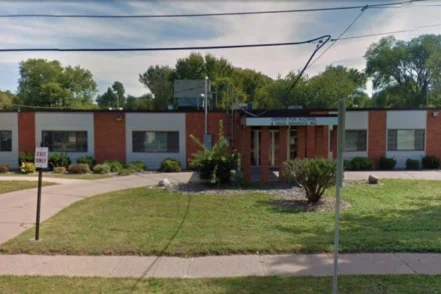 Iowa
IowaCenter for Alcohol and Drug Services CADS Fairmount
1523 South Fairmount Street Davenport, Iowa 52802
-
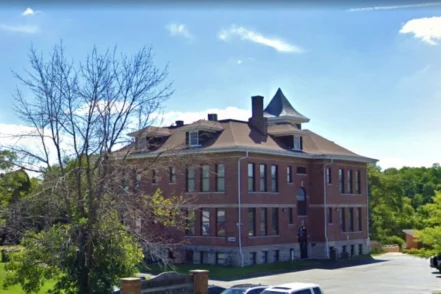 Iowa
IowaAlcohol and Drug Dependency Services ADDS Burlington
1340 Mount Pleasant Street Burlington, Iowa 52601
-
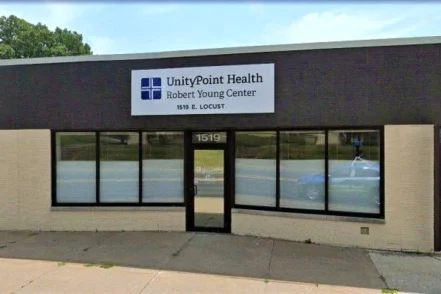 Iowa
IowaCADS Center for Alcohol and Drug Services Locust
1519 East Locust Street Davenport, Iowa 52803
-
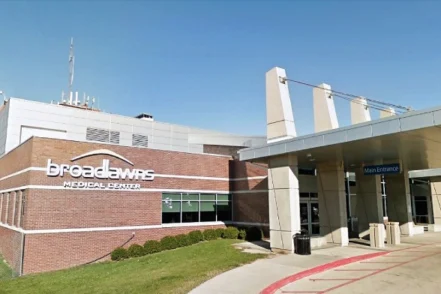 Iowa
IowaBroadlawns Medical Center New Connections
1801 Hickman Road Des Moines, Iowa 50314
-
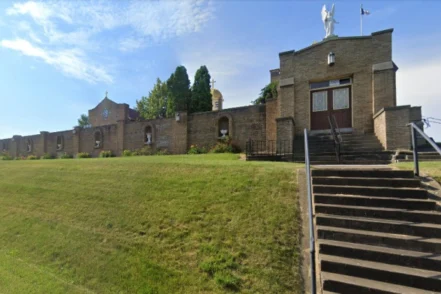 Iowa
IowaThe Abbey Center
1401 Central Avenue Bettendorf, Iowa 52722
-
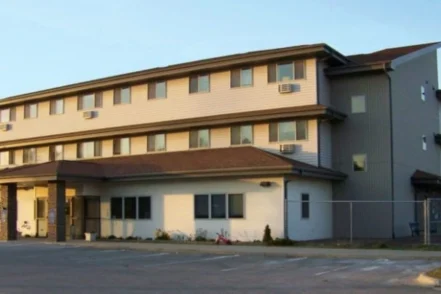 Iowa
IowaPrelude Behavioral Services Synchrony
438 Southgate Avenue Iowa City, Iowa 52240
-
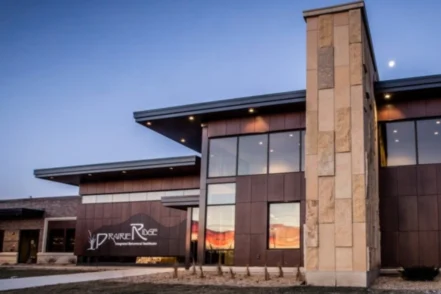 Iowa
IowaPrairie Ridge Integrated Behavioral Healthcare Mason City
320 North Eisenhower Avenue Mason City, Iowa 50402
-
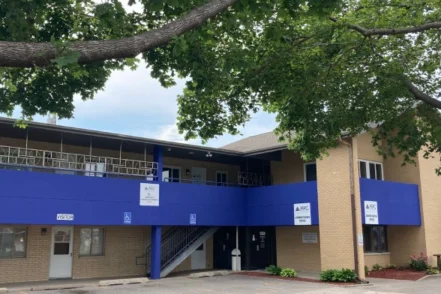 Iowa
IowaASAC Area Substance Abuse Council Main Campus
3601 16Th Avenue Sw Cedar Rapids, Iowa 52404

